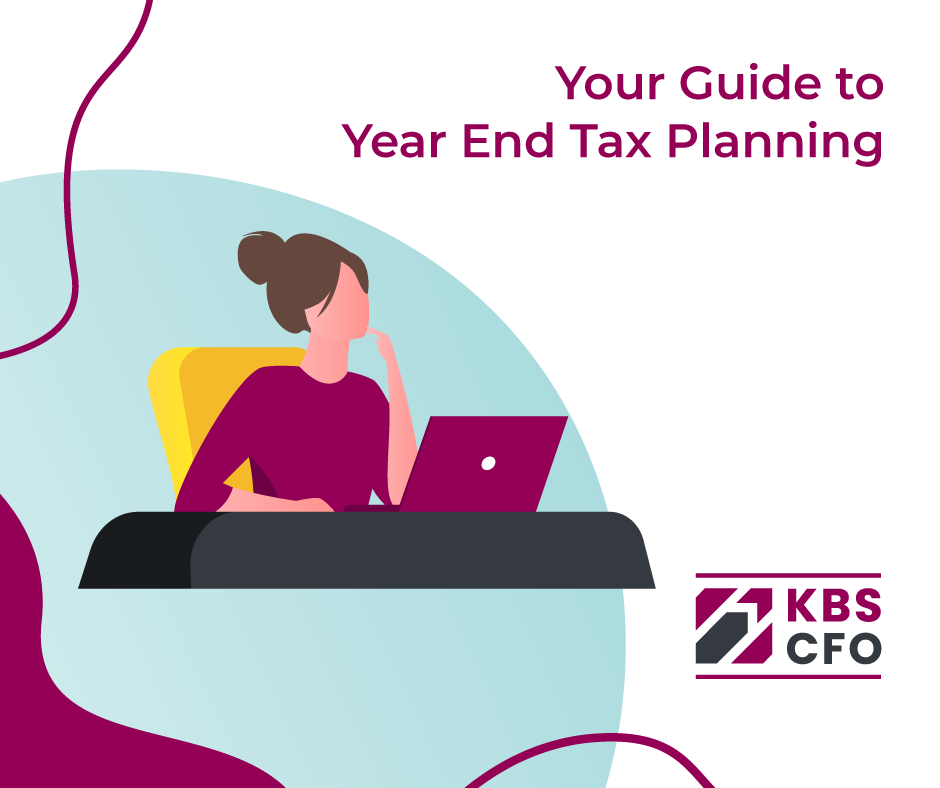Blog

Your Guide to Year-End Tax Planning
Years ago, I worked for a tax firm as a junior accountant. When it came time for year-end tax planning, I had a client I could see coming from a mile away. This client was the owner of multiple fine dining restaurants, one of them on the waterfront of Washington, DC. These restaurants became popular in the area and made the owner quite wealthy.
He relied on the firm where I was employed to handle his taxes, and each year he would walk into the buttoned-up office with one of those big paper Bloomingdale’s bags full of papers. These papers included his receipts, bank statements for 10-15 financial institutions, credit card statements for about 10 credit cards he used, loan documents from the year, partnership agreements that had changed, tax correspondence about his restaurants, payroll tax returns, and any tax notices he had received during the year. It was heavy, filled with an unorganized year’s worth of information. He would walk in with this bag (sometimes two) and place it squarely on my desk, accompanied by a smile and possibly a freshly baked pastry from one of his restaurants. It was an annual ritual well known in the firm filled with public CPA formality.
It took weeks to make sense of all the information in those paper bags. Eventually, the chaos of those papers would be transformed into tax returns totalling over 100-200 pages. Everything would be put in order to ensure the information could withstand IRS scrutiny. It was quite the challenge. And it stands out in my mind, in part due to the rigor and because of the client’s warm, friendly attitude. The client was happy to pay whatever we required and had the means to do so.
While I worked at that public accounting firm, as I have with all my positions, I focused on providing the services as requested by the client. I was a junior CPA at that time and didn’t have an advisory role. Upon reflection, it has come to my mind that we were missing an opportunity. So much time could have been saved with consistent, knowledgeable financial management instead of sorting it all out at the end of the year. We were also missing an opportunity to make decisions (and pivots) throughout the year because we didn’t have this information.
How Outsourced CFO Services Help Small Businesses Year-Round
That is where a CFO’s lens on the scenario comes into play. An outsourced CFO (also known as a Fractional CFO) gives business owners the professional outlook on the financial operation when there may be time for action. Now, with the technology resources available in the marketplace, we can recommend systems for businesses that capture the story of the day-to-day financial activities. A CFO empowers the business owner to do what they do best, like running successful restaurants where customers come to enjoy the food and drink, renovating homes, distilling spirits, and leaving the tax planning to the accounting professionals.
This is similar to a well-run kitchen, where the sous chef, line cook, and dishwasher ensure that the Chef is able to focus on the menu so customers are consistently enjoying great dining experiences. When it comes to tax preparation and advanced tax planning, when the information is pulled together into a clear, comprehensive, consolidated package, the tax advisor can step right in and do what they do best without being held back by poor record keeping.
Most business owners we meet don’t have the wealth and financial position that we encountered with the restaurant owner with the brown paper bag described above. Managing resources is an issue, and the vast majority of us can’t write a blank check for tax preparation services (or other accounting services).
The good news is that there is an easy solution. Using outsourced CFO services ends up being an effective means of managing resources within the finance and accounting function.
Tax preparation can be tedious, annoying, and anxiety-inducing. We provide our clients with peace of mind, forward-looking guidance that anticipates problems, growth opportunities, market trends, and much more.
The KBS CFO Tax Prep Process
We use a tried-and-true process for closing out the accounting information at the end of the year, for both the client’s internal records and to facilitate tax advisory and preparation. Our objective is to ensure that there is no stone left unturned with the client’s financial history for the last fiscal year before closing the chapter and passing on to tax preparers, banks and others that want to fully understand how the year shook out.
We have outlined our year-end close process for those interested.
Year-End Tax Planning = A Smoother Workflow for All
A common headache among our tax team(s) we work with is having to recant all kinds of documents, track down data, deal with unnecessaries, re-work documents, and so on. Our year-end document package gives accounting pros all the details they need, in a clear, consistent manner.
We regularly receive feedback that the year-end close package we provide allows for our tax colleagues to do their best work.
The year end close is just one ingredient in the comprehensive, proactive menu of services we offer as an anticipatory CFO. My clients get to experience a tax preparation process that lets them focus on managing the other elements of their business with confidence, knowing that their CFO/internal accounting team and the tax accounting team(s) are connected and taking care of all their finance and accounting needs, including the tax aspects, from start to finish. We make sense of the finances and identify obstacles so our clients can focus on realizing their dreams. Contact us any time and let’s talk about the ways that KBS CFO can provide support for your organization throughout the year and at the end of the year.
